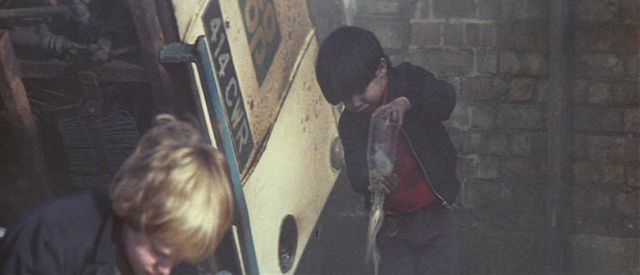 This was my first and long overdue venture into the world of Svankmajer, a Czech filmmaker who has a penchant for stop-motion. Honestly, I was not sure if Otesanek ("Little Otik" in English but also known as "Greedy Guts") would be up my alley. More than anything I was in search a new sort of film experience. As it turns out, Svankmajer hooked me in the opening moments and had me going throughout.
This was my first and long overdue venture into the world of Svankmajer, a Czech filmmaker who has a penchant for stop-motion. Honestly, I was not sure if Otesanek ("Little Otik" in English but also known as "Greedy Guts") would be up my alley. More than anything I was in search a new sort of film experience. As it turns out, Svankmajer hooked me in the opening moments and had me going throughout.We follow the tenants of a lower middle class apartment building presumably in Prague, particularly the two lovers Karel (Jan Hartl) and Bozena (Verinoka Zilkova) who desperately want a child but cannot concieve due to their mutual sterility. Much patience is involved in developing the details of the situation as the main story does not begin until a considerable amount of time has passed and Karel finally, as a sweet gesture for his wife, carves a tree stump to look like a child. Bozena instantly latches on to the inanimate object and appears mad with motherly instinct as she nurses the stump to life - a life in which it will never have its hunger satisfied by anything less than human flesh.
This is all a rendition of an old Eastern European fairy tale under the same name. The tale, like most of its kind, is quite simple but Svankmajer has delved deep and found intricacies to expound upon in a subtle manner. We have parallels drawn by edits such as the swineherd Otik swallows being related to the cops on the cases of missing people and we have overarching themes such as humanity's gall in thinking we can interfere with some of life's mysteries. The stop motion interwoven with live action during the scenes in question is to die for.
If you're like me and are aching for an uncompromised, uncensored, unique film with the MPAA gradually taking over American filmmaking, Czech this one out. It's startling, haunting, intricately woven and really, just plain brilliant.


